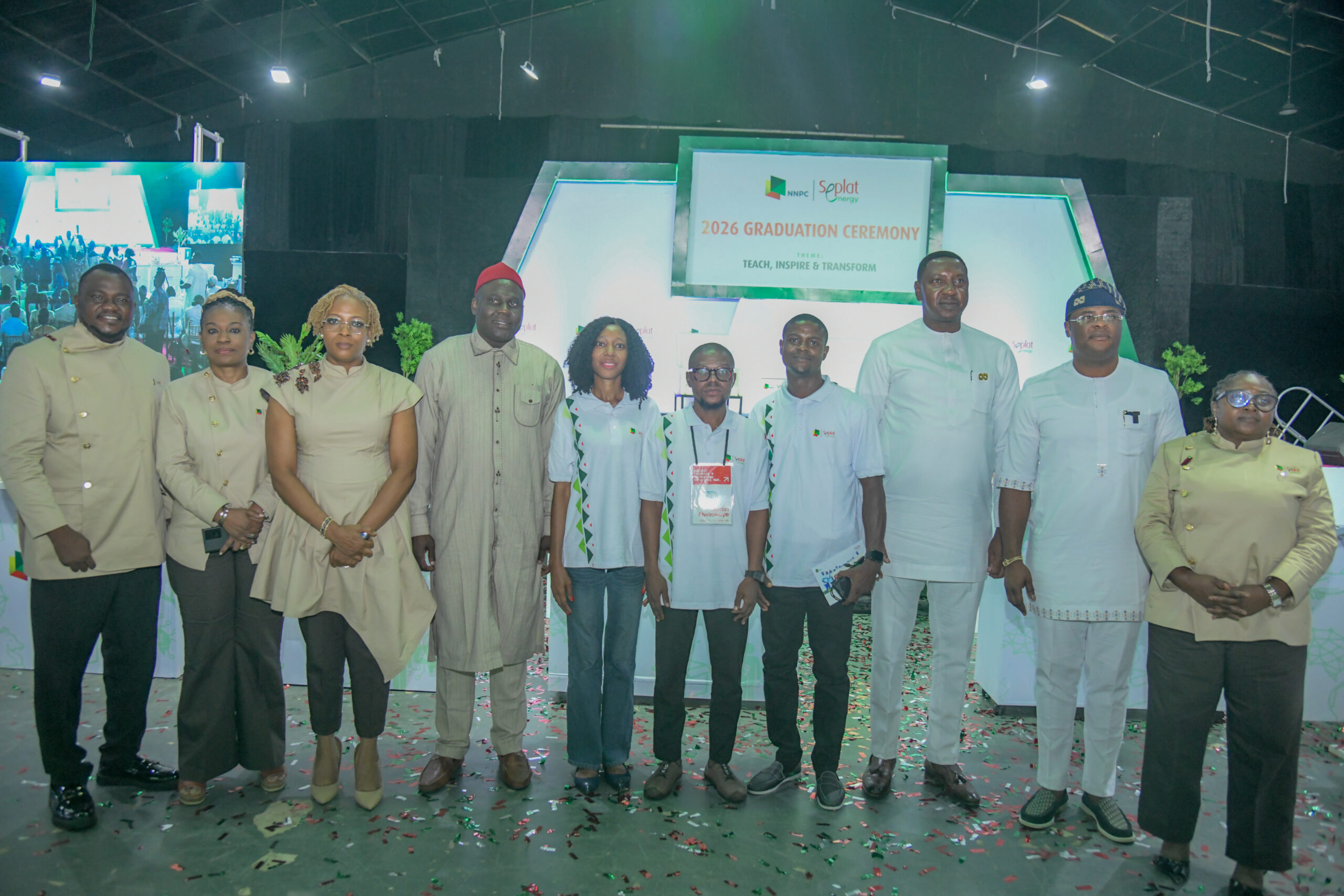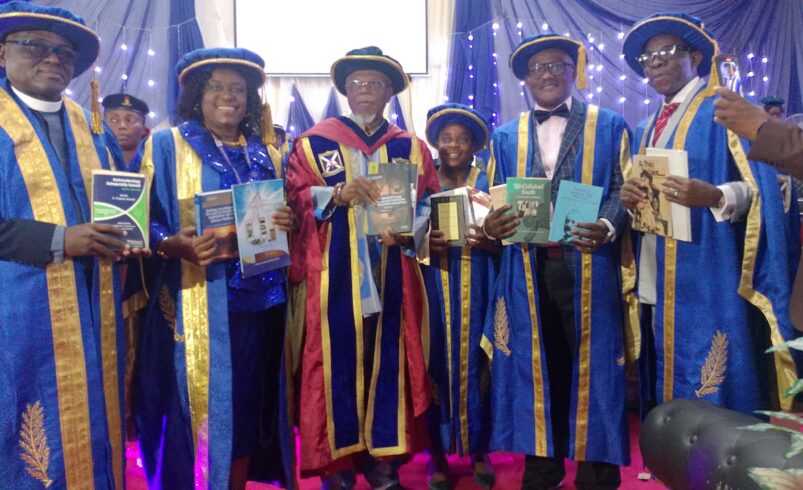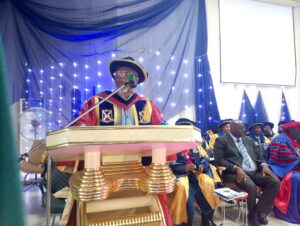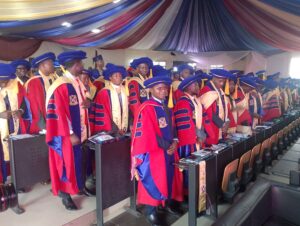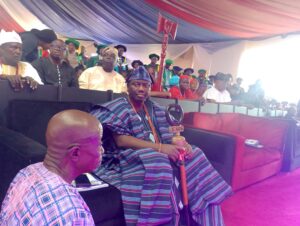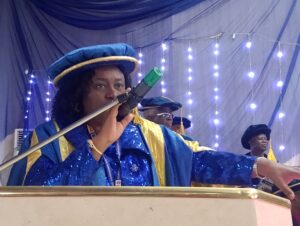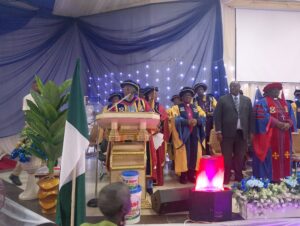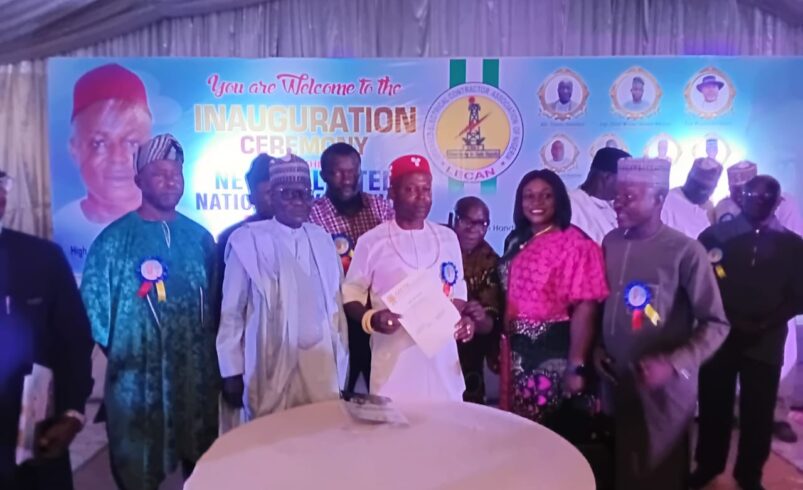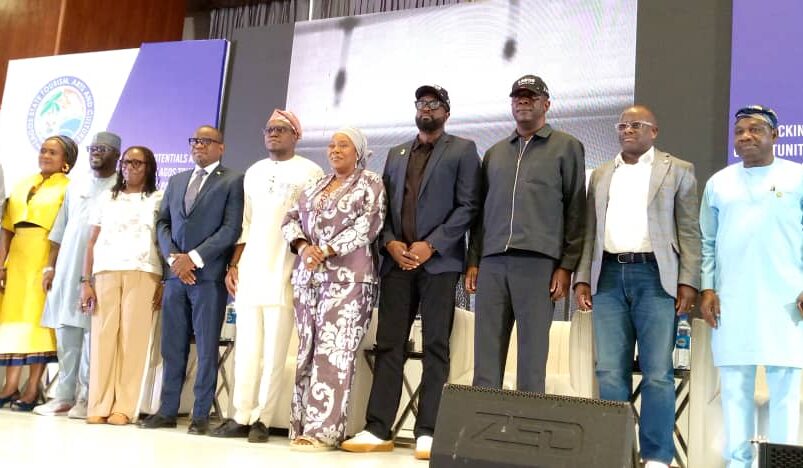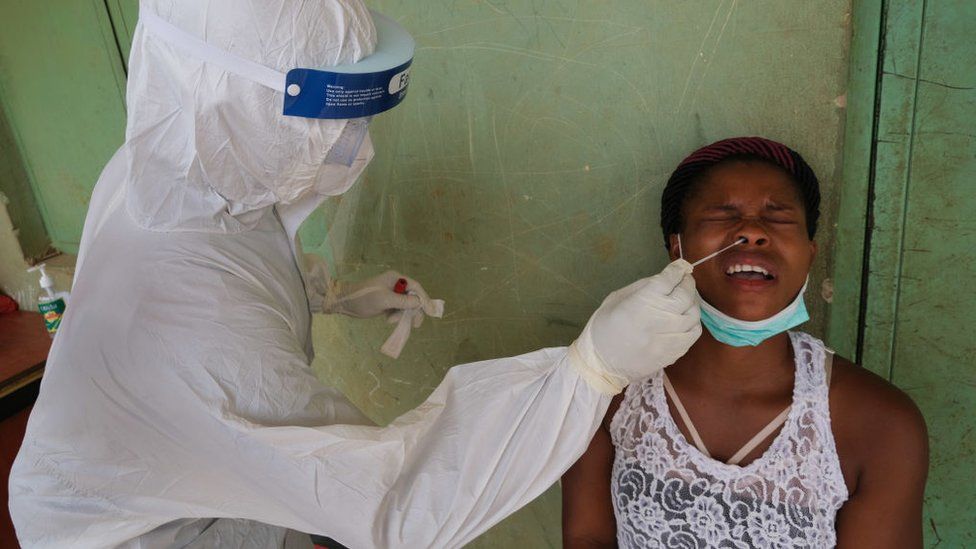The serene campus of Ajayi Crowther University, Oyo, came alive on Thursday as scholars, parents, graduands, and dignitaries converged for the highly anticipated 17th Convocation Ceremony.
But long before the graduates would walk proudly across the stage to receive their Doctor of Philosophy degrees, an intellectual feast was served.
It came from none other than the eminent historian and Africa’s globally respected scholar, Professor Toyin Falola.
Delivering the convocation lecture titled “The Future of Knowledge,” Falola took the audience on a sweeping journey, from ancient libraries to Artificial Intelligence, unbundling how knowledge is produced, owned, distorted, and weaponized in the modern era.
His message was clear: the world is changing fast, and Africa must not sit idle.
He argued that knowledge has never been static, but the speed of its evolution in the 21st century is something humanity has never witnessed before.
According to him, the world has transitioned from an era where monks, priests, and custodians locked knowledge in vaults to a time when information can travel across continents in seconds.
That shift, he warned, presents both opportunities and dangers.
“We now face a new crisis,” he said. “Not the absence of knowledge, but the overwhelming abundance of it.”
Fake news, manipulated data, algorithmic distortions, and digital noise, he noted, now compete aggressively with verified truth.
Yet, Falola insisted that the greater threat is not misinformation, it is epistemic dependency, the risk of allowing foreign technologies to define what counts as knowledge in Africa.
The renowned professor likened the rapid rise of AI to the disruptions Africa faced during the colonial era.
He cautioned that if Africa fails to innovate, the continent may sleepwalk into a fresh wave of colonization, this time digital, not territorial.
“We must not allow algorithms developed elsewhere to become the new missionaries of intellectual domination,” he declared.
Falola emphasized that Africa must do more than consume technology, it must shape, feed, and build it.
In his words, “We must embed African languages, histories, and epistemologies into AI systems if we truly seek technological sovereignty.”
Tracing the historic shifts in knowledge production, Falola explained that what was once static is now fluid, constantly altered by real-time digital updates.
That fluidity, he said, creates room for African systems, like Yoruba metaphysics and oral traditions, to contribute meaningfully to global conversations.
However, the same fluidity also threatens the survival of indigenous wisdom.
“If the digital world keeps rewriting truth every day,” he asked, “what becomes of the memory of our people?”
In Falola’s assessment, ideas now have shorter lifespans than ever before.
Concepts once debated for years can be created, circulated, and dismissed in hours.
This speed, he warned, could erode collective memory and weaken cultural continuity.
Another major transformation he identified is the shift from single authorities, churches, scholarly institutions, governments, to a plurality of knowledge systems.
Indigenous, feminist, diasporic, and decolonial perspectives, he said, now exercise influence alongside modern science.
While this plurality enriches global understanding, it also brings fragmentation and ideological conflict.
Falola referenced intellectuals like Ngũgĩ wa Thiong’o and Kwesi Prah, arguing that language remains a decisive battleground in knowledge production.
He urged Africans to reclaim and digitize their languages, warning that linguistic marginalization automatically leads to epistemic marginalization.
“Any language excluded from the digital world,” he noted, “risks extinction in the future of knowledge.”
He also highlighted the homogenizing power of big tech companies, particularly those in Silicon Valley, which determine what information is amplified or erased.
Falola feared that without deliberate action, tech giants could become today’s colonial powers.
To prevent that outcome, he called for African-built digital archives, African-controlled data centers, and African-developed AI models.
He has long advocated for an African AI consortium that will protect the continent’s intellectual autonomy.
Turning to the audience of graduands, he urged them to approach technology with caution, curiosity, and courage.
“AI is not inherently evil,” he explained. “Its impact depends on how we use it, and who controls it.”
He described a future where knowledge will increasingly be governed by algorithms rather than humans.
To navigate that world, he said, societies must learn not just to gather information, but to transform information into wisdom.
“This era celebrates data, but forgets meaning,” he lamented. “A wise society connects fact with value, logic with empathy, innovation with responsibility.”
Falola argued that African knowledge systems, with their emphasis on morality, spirituality, community, and balance, can guide the world toward ethical technology.
“Technology must be humanized,” he said. “Otherwise, we risk building machines that are intelligent but not wise.”
He called for a restoration of dialogue between science and spirituality, an approach he said Africa has practiced for centuries.
For him, the future belongs not to the most technologically advanced society, but to the most wise one.
Falola also addressed looming challenges such as plagiarism, declining critical thinking, and excessive reliance on automated systems.
He warned educators not to surrender intellectual creativity to machines.
“Artificial Intelligence should never replace inquiry,” he insisted. “Our universities must guard originality fiercely.”
Another danger, he said, is the growing epidemic of misinformation and disinformation spreading through digital platforms.
He called for stronger training in media literacy, skepticism, and analytical reasoning.
Falola stressed that digital inequality remains a major threat, as millions of Africans still lack access to basic technological tools.
Without equitable access, he said, the digital revolution will widen global gaps rather than bridge them.
To keep knowledge relevant, he insisted it must respond to real societal crises, climate change, injustice, pandemics, conflict, and inequality.
“Knowledge that does not serve humanity becomes irrelevant,” he stated.
As he concluded, Falola returned to the symbolic importance of Ajayi Crowther University, the first Anglican university in Nigeria, founded on the legacy of Bishop Samuel Ajayi Crowther.
He urged the institution to continue nurturing minds that can question, innovate, preserve memory, and create new knowledge.
“The question is no longer how we come to know,” he said slowly, “but who we become after we have known.”
The auditorium erupted in applause, a sign that the message had struck a deep chord, not just with the graduands, but with everyone present.



